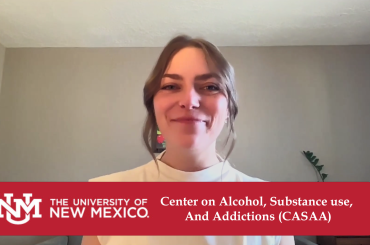The holiday season can be the most joyful time of the year. Unfortunately, it can also be a source of stress for many people. It can be especially stressful for those recovering from drug and alcohol addiction, who may be experiencing strained relationships with loved ones or finding themselves in situations that could trigger them to use.
Why Is Stress More Common During the Holidays?
Most people are familiar with the heightened level of stress and anxiety that can creep in from a variety of sources this time of year:
- Financial strain, specifically on families struggling with increased holiday spending
- Workplace stress, related to end-of-year tasks and needing time off for the holidays
- Seasonal Affective Disorder, often referred to as SAD or seasonal depression
- Traveling stress, including flight delays, increased vehicle traffic, and safety concerns
- Obligations to attend gatherings, many of which may be painful or uncomfortable if you’re in recovery
At The River Source, we’ve compiled a few tips and strategies to help you navigate the holiday season without sending your sobriety off-course, no matter what stage of recovery you’re in.
1. Come Prepared and Know Your Boundaries
Maybe your family members all know that you’re in recovery. Maybe there are some who didn’t know about your addiction in the first place. If you know that your friends or family members may ask difficult or awkward questions, plan a consistent response. Practice how you’d answer them beforehand in a way that makes you feel comfortable, and have an exit strategy, in case you feel too overwhelmed.
It’s also important not to let family or friends force you into doing something that would compromise your recovery, regardless of well-meaning intentions. For example, someone may pressure you to have “just one drink” with them for a toast, or invite you to stick around for an after-party. Depending on how transparent you want to be with your recovery, you can figure out the best way to navigate these situations when you plan ahead and give yourself time to think about how to respond. And while it’s always okay to just politely say no, a well-thought-out excuse can also help you dodge a conversation you don’t want to have.
Here’s a few things to consider when preparing for holiday festivities:
- Don’t get stuck – plan on driving separate.
- Stick to a schedule – plan on arriving and leaving early.
- Y.O.D – bring your own non-alcoholic drink.
- Bring support – invite a sober friend to tag along with you to an event.
- Redefine the meaning of “fun” – enjoy the food, renew a relationship, celebrate a loved one’s success.
- Visit In The Rooms – check the upcoming schedule in case you need to jump in a meeting before, during, or after the holiday.
- Find a meeting hall nearby that is hosting an “Alcathon” or all-day meeting either in person or virtually. Many folks will spend several hours, or even the entire day at these events to support each other through the holiday. Plus, they are a ton of fun.
2. Keep Trigger Avoidance in Mind
Going home for the holidays can be stressful. There’s the social obligations and expectations, but also, depending on your situation, it can also expose you to a number of things that can trigger relapse. You might find yourself in the presence of addictive substances, or exposed to the places where you used to abuse drugs or alcohol, and the people you abused them with. These are all triggers that people in recovery commonly experience when they visit home this time of year. These are certainly not the only triggers.
Here’s a few other things that may trigger you to use when returning home for the holidays:
- Lack of regular contact with your sponsor, sponsees, and recovery fellowship
- Changes in the quality and frequency of your prayer and meditation routines
- Contributing to festivities – gift shopping, decorating, cooking, baking, etc.
- Changes in your routine; a lack of sleep
- Pressure to provide personal life updates – relationships, professional, etc.
- Temporary living arrangements at a loved one’s house or a hotel
- Reminiscing with loved ones about past-times when you were using
You’ve gotten to this point for a reason. It’s important that you continue using the tools you’ve learned in recovery to steer clear of not just the people you may have used with, but any person, place, or situation that may negatively impact your mental health, and ultimately your sobriety. Which leads to our final tip…
3. Practice Self-Care
It is okay to walk away from situations where you feel compromised or stressed. Log out of the Zoom call with your family if you need to. Leave the room to take a moment for yourself if the atmosphere becomes overwhelming. Sometimes, prioritizing your recovery and your mental health might mean avoiding gatherings altogether. This could make for a lonely holiday season, but it’s up to you to weigh the pros and cons of each option.
If you end up spending the holidays alone for your own wellbeing, or you just need some extra support, don’t be afraid to ask for help. That’s where you can lean on The River Source.
If You’re Stressed This Holiday Season, Reach Out

Contact us at 855-512-8263 for a confidential phone consultation or click here to learn more about Telehealth IOP at The River Source today.







